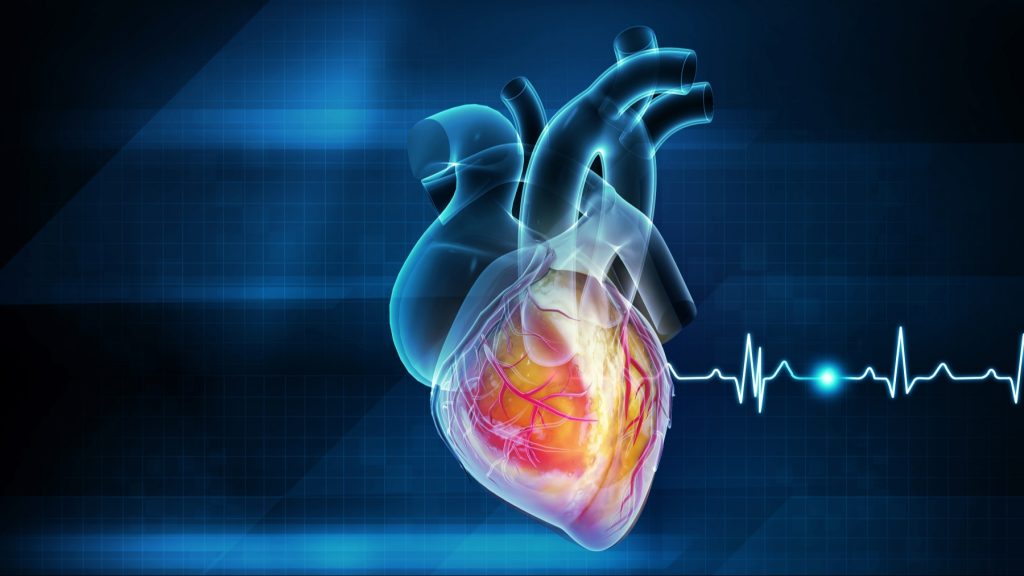
Scientists are calling a new AI technology, a heart attack detector, a “game changer” that could be implemented within the next 10 years.
The new medical heart attack detector model, which detects heart attack-related inflammation that typical CT scans cannot see. Backed by NHS England, a trial is taking place at five hospitals in Oxford, Milton Keynes, Leicester, Liverpool, and Wolverhampton. A decision about its nationwide use in the NHS is expected soon.
Oxford University spinout company, Caristo Diagnostics, which developed the technology, are also working to adapt it to prevent strokes and diabetes.
“This technology is transformative and game-changing because, for the first time, we can detect the biological processes that are invisible to the human eye, which precede the development of narrowing’s and blockages within the heart,” said Prof Keith Channon from the University of Oxford.
Heart Attack Detector Functionality
In the pilot project for the heart attack detector, patients with chest pain referred for a CT scan have their scans analyzed by Caristo Diagnostics’ CaRi-Heart AI platform. The AI detects coronary inflammation and plaque, which are then verified by trained operators. Research has linkned increased inflammation to higher risks of heart disease and fatal heart attacks.
According to the British Heart Foundation (BHF), approximately 7.6 million people in the UK live with heart disease, costing the NHS £7.4 billion annually. Each year, around 350,000 UK patients undergo cardiac CT scans.
The Orfan study, involving 40,000 patients and published in The Lancet, revealed that 80% of patients were sent back to primary care without a clear prevention or treatment plan. The study found that those with coronary inflammation had a 20 to 30 times higher risk of dying from a cardiac event over the next decade. With the use of AI heart attack detector technology, 45% of these patients received medication or lifestyle change advice to reduce future heart attack risks.
Real-Life Impact
Ian Pickford, 58, from Barwell, Leicestershire, is one of the study’s 40,000 participants. After experiencing persistent chest pain, he was referred for a CT scan in November 2023 and enrolled in the Orfan study. The AI analysis revealed he was at risk of a heart attack, leading to him being prescribed statins, quitting smoking, and increasing exercise. “It’s a huge wake-up call,” Mr. Pickford said. “And when you see it on paper, you realize how serious it is. It’s something you can look at each day and think, ‘I’ve got to do something about this.'”
Prof Charalambos Antoniades, who is leading the Orfan study, said previous risk assessment tools were primitive and based on general factors such as diabetes, smoking or obesity. “Now, with this kind of AI heart attack detector technology, we know exactly which patient has the disease activity in their arteries before the disease has even developed,” he said. This allows us to move early, nip the disease process in the bud, and treat this patient to prevent a disease from developing and then prevent heart attacks from happening.
Final Thoughts
Technology such as the heart attack detector is being appraised by the National Institute for Health and Care Excellence for its possible use within the NHS. It is under review in the US and has already been approved for use in Europe and Australia.
This new AI heart attack detector technology has the potential to save many lives by detecting heart problems early. By finding inflammation in the heart that normal scans can’t see, doctors can act before serious issues like heart attacks happen. This means patients can start treatments or make lifestyle changes sooner, which can prevent heart disease from getting worse. If the NHS decides to use this technology widely, it could mean a big step forward in how we care for heart health. The success of this AI could also lead to its use in preventing other diseases, showing how powerful technology can be in improving our health.
Inside Telecom provides you with an extensive list of content covering all aspects of the Tech industry. Keep an eye on our Medtech section to stay informed and updated with our daily articles.